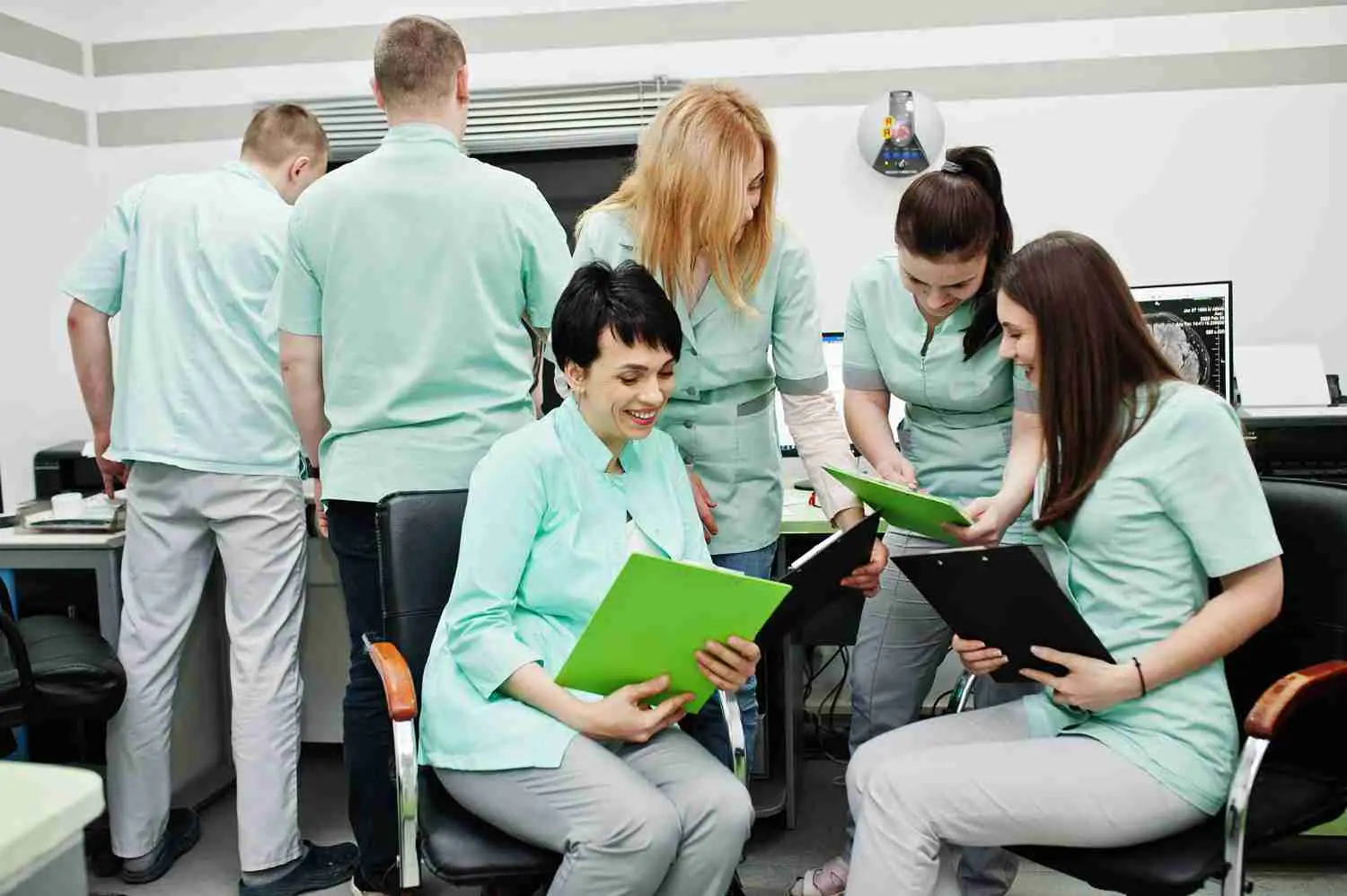

Unconventional Factors to Consider When Choosing a BSc Nursing Course
When contemplating a career in nursing, choosing the right B.Sc nursing course is a decision that goes beyond just comparing course fees. While "B.sc nursing course fees in Punjab" might be a common starting point for many prospective students, several less obvious yet equally important factors can significantly influence your education and future career. In this blog, we'll explore some of these unconventional aspects to consider when selecting your B.Sc nursing course. From the culture of the institution to the real-world applicability of the curriculum, these factors will provide a deeper insight into what makes a nursing program truly stand out. Let's delve into what makes a B.Sc nursing course not just a good choice, but the right choice for your professional aspirations. Join us as we look beyond the basics and uncover what to really look for in a B.Sc nursing program.
Unconventional Factors to Look Out for in a BSc Nursing Course
-
Location and Setting
Choosing the right location for your BSc nursing course is about more than just geography. The setting of your university can greatly affect your studies and lifestyle. Urban campuses offer bustling environments with easy access to major healthcare centers, providing a wealth of opportunities for practical training. On the other hand, institutions in quieter, rural areas might offer a more focused study environment and unique community health engagement opportunities. Consider what type of setting will best suit your learning style and career goals.
-
Diversity and Inclusivity
A diverse and inclusive environment enriches the learning experience, offering students exposure to a wide range of perspectives and expertise. When evaluating B.Sc nursing courses, look at the diversity of the student body and faculty. Programs that emphasize inclusivity tend to cultivate empathy and cultural competence—qualities that are indispensable in nursing. These programs prepare you to meet the needs of diverse patient populations, equipping you with the ability to deliver culturally sensitive care.
-
Campus Culture
Campus culture can significantly impact your educational experience. A supportive, collaborative environment enhances learning and personal growth. Does the institution encourage teamwork and problem-solving? Is there an emphasis on mental health and well-being? Understanding the campus culture will help you choose a B.Sc nursing program where you can thrive both academically and personally.
-
Innovative Teaching Methods
The field of nursing is constantly evolving, and educational methods should keep pace with these changes. Forward-thinking programs that incorporate innovative teaching methods, such as simulation labs, interactive case studies, and integrated technology, prepare students for the complexities of modern skilled healthcare profession settings. These approaches not only enhance learning but also improve your readiness to handle real-world challenges.
-
Global Opportunities
Understanding international health issues is more important than ever. B.Sc nursing courses that offer global exchange programs, international internships, or partnerships with overseas healthcare institutions provide students with invaluable global perspectives and experiences. These opportunities can broaden their understanding of global health care systems, challenges, and practices, making them more adaptable and resourceful nurses.
-
Community Engagement
Community engagement is a crucial aspect of nursing education. Programs that connect students with local communities through volunteer work, health camps, and public health initiatives offer practical experience while fostering a spirit of service. Engaging with the community allows you to apply your learning in real-world situations, enhancing your skills and making a positive impact in the lives of others.
-
Career Support Services
Finally, consider the career support services offered by the institution. Comprehensive career services play a pivotal role in transitioning from education to employment. Look for programs that provide robust job placement services, resume-building workshops, networking events, and guidance from experienced career advisors. These services can be instrumental in helping you navigate the early stages of your nursing career.
Choosing the right B.Sc nursing course involves looking beyond the basics of "Bsc nursing course fees in Punjab." By considering these unconventional factors, you can select a program that not only meets your educational needs but also prepares you for a successful and fulfilling career in nursing.
How to Find the Right Career Path After B.Sc. Nursing?
After completing a B.Sc Nursing degree, determining the right career path involves assessing personal interests, skills, and long-term goals. Consider specialties within nursing, such as pediatric, geriatric, or oncology nursing, which can offer diverse career opportunities. Engage in continuous education and training to enhance your qualifications and stay updated with the latest healthcare trends. Networking with professionals through seminars and associations can also provide insights and opportunities. Lastly, reflect on the environments where you thrive, whether in fast-paced hospital settings or in community-based roles, to choose a path that truly aligns with your aspirations.
How Much Does a BSc Nursing Course Cost in Punjab?
The cost of a B.Sc nursing course in Punjab can vary widely depending on the institution and the type of program offered. Generally, fees range from approximately ₹40,000 to ₹1,50,000 per annum. Private institutions might charge at the higher end of this spectrum, reflecting their potentially more sophisticated facilities and resources. Additional costs such as uniforms, books, and supplies, as well as accommodations, should also be considered in the overall expenses. Financial aid options, such as scholarships and grants, are available at many institutions, which can help mitigate these costs. Prospective students should research thoroughly to find the most cost-effective program that does not compromise on quality education.
Be a Part of Change with Phoenix Nursing Institute
Joining the Phoenix Nursing Institute means more than just pursuing a degree; it's about becoming a part of a community that embraces change and fosters innovation in healthcare. With a focus on comprehensive education, cutting-edge facilities, and a commitment to producing skilled, compassionate nurses, Phoenix is ideal for those ready to make a significant impact in the field. Our programs are designed not just to meet the current demands of healthcare but to anticipate future challenges. By choosing Phoenix, you commit to a path of lifelong learning and leadership in nursing, equipped to enhance patient care and improve community health standards globally.
Frequently Asked Questions
- Q: How can community engagement benefit a nursing student's education?
Ans: Community engagement allows nursing students to apply their theoretical knowledge in real-world settings, gaining practical experience while making a positive impact on local communities. It enhances their understanding of diverse patient populations and healthcare needs, fostering empathy and cultural competence essential for effective nursing practice.
- Q: What are the factors in choosing nursing?
Ans: Several factors influence the decision to pursue nursing, including a passion for helping others, interest in healthcare, job stability, and opportunities for career advancement. Additionally, personal values, strengths, and preferences for work environments play a significant role in choosing nursing as a career path.
- Q: What role do extracurricular opportunities play in selecting a BSc nursing program?
Ans: Extracurricular opportunities such as volunteer work, internships, and student organizations provide hands-on experience, networking opportunities, and skill development outside the classroom. They enhance students' resumes, broaden their perspectives, and help them develop leadership and teamwork skills crucial for success in nursing and beyond.
- Q: How can I find the right career path after my B.Sc. Nursing?
Ans: Finding the right career path after completing a BSc Nursing degree involves self-assessment, exploring various specialties within nursing, networking with professionals, and seeking mentorship and guidance. Continuous learning, professional development, and staying informed about emerging healthcare trends are also essential for career advancement and fulfillment.
- Q: What is the aim of BSc Nursing students?
Ans: The primary aim of BSc Nursing students is to acquire the knowledge, skills, and competencies necessary to provide high-quality nursing care across diverse healthcare settings. They aim to promote health, prevent illness, alleviate suffering, and advocate for patients' well-being while upholding ethical standards and professional integrity. BSc Nursing programs prepare students to deliver evidence-based care, collaborate with interdisciplinary teams, and adapt to evolving healthcare needs.

